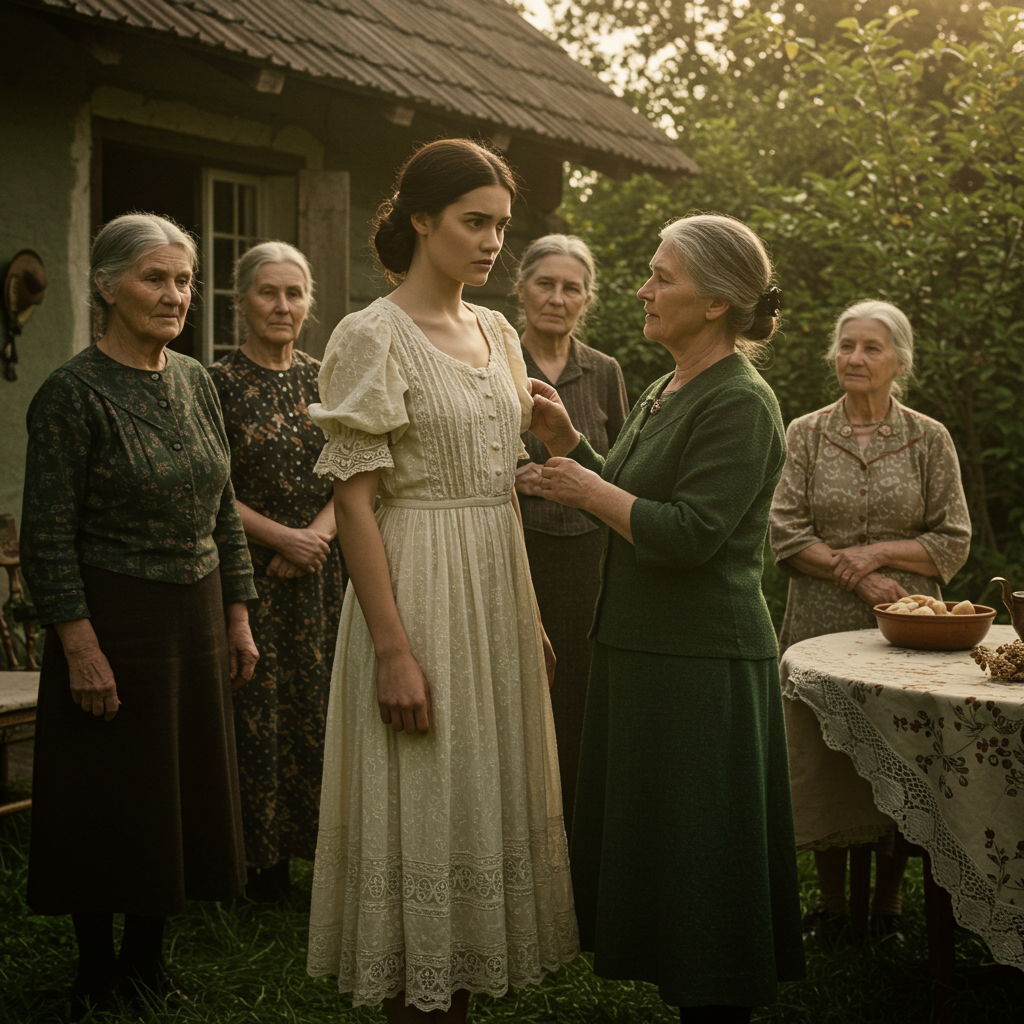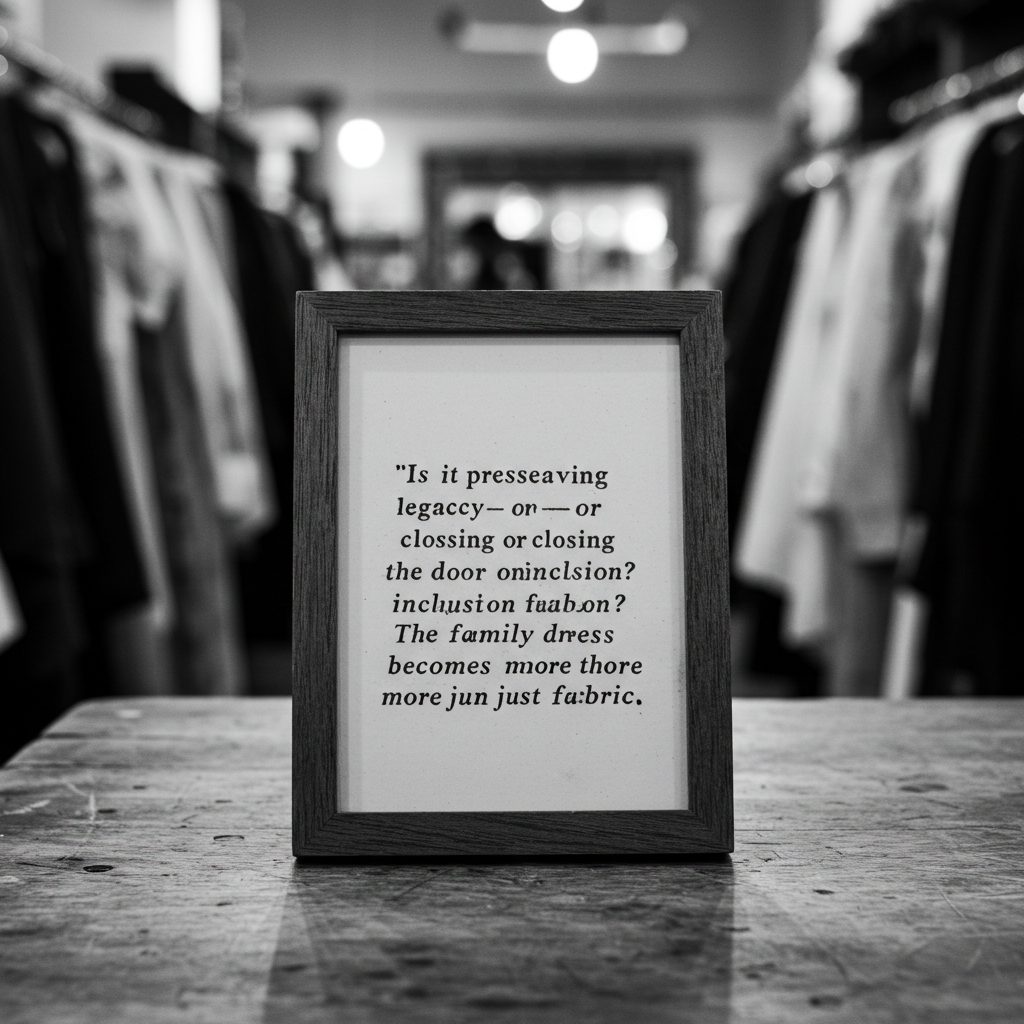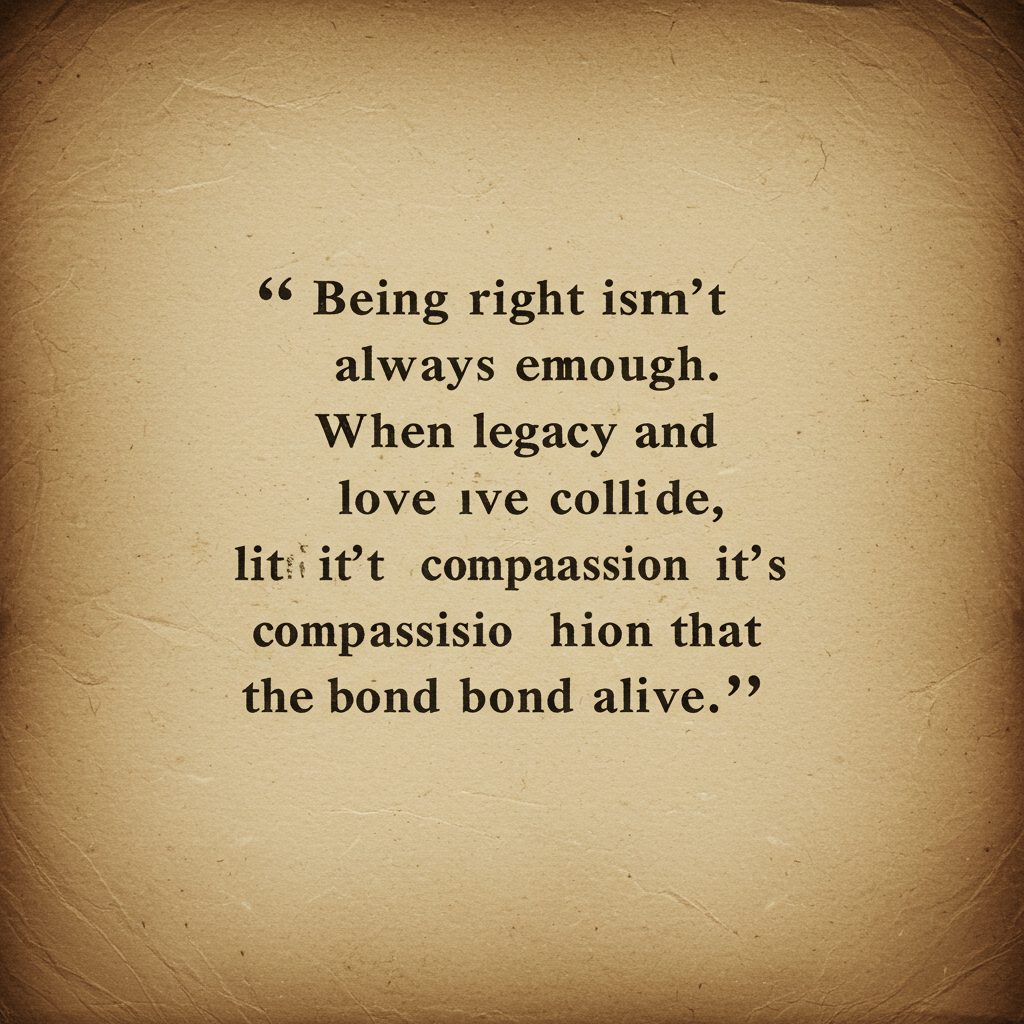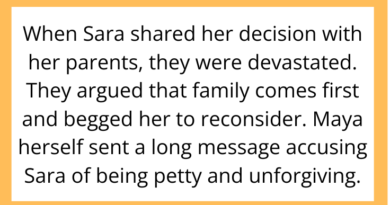Am I the Jerk for Not Letting My Fiancée Wear a Family Heirloom Dress at Our Wedding?
Weddings are often described as the happiest day of a couple’s life, but sometimes, the road to that altar is filled with more drama than joy. When traditions, family expectations, and emotions collide, even the smallest decisions can turn into big disputes. That’s exactly what happened to one Reddit user who shared their AITAH story about a wedding dress, a family heirloom, and a request that left them questioning their stance.
This scenario brings up deep questions about boundaries, family heritage, and where to draw the line when love and legacy don’t align.
The Situation: A Dress with History

The Original Poster (OP) explained that in their family, a specific wedding dress has been passed down through generations. It originally belonged to OP’s great-grandmother and has been worn by several women in the family on their wedding day—including OP’s mother and sister.
OP, a man, didn’t think this dress would come into play—until his fiancée saw photos of it and asked if she could wear it at their wedding. At first, OP was taken aback but tried to approach the request with sensitivity. However, after speaking with his mother and sister, both were against it, emphasizing the dress was meant to be worn by women born into the family.
When OP relayed this to his fiancée, she was devastated and accused him of valuing tradition over her. She said he was being unfair and gatekeeping something beautiful just because she wasn’t a blood relative.
Now OP is left wondering: Am I the jerk for not letting my fiancée wear the heirloom dress at our wedding?
Tradition or Exclusion? Understanding the Heirloom’s Significance

Family History Matters
In many families, heirlooms carry immense emotional value. They’re not just objects—they’re living symbols of connection, legacy, and shared identity. OP’s family dress represented generations of marriage and continuity.
By denying the request, OP wasn’t necessarily being selfish but upholding a tradition that his family cherishes. For families with strong historical roots, these items are sacred.
Letting someone outside that lineage wear the dress, while loving, might feel like diluting the significance.
Where Is the Line Between Sentiment and Inclusion?
The conflict here also brings up an important tension: when do traditions become barriers? And when should they evolve?
While OP may be honoring a tradition, it’s also understandable that his fiancée felt excluded. From her perspective, marriage is about becoming part of the family—and this rejection may have made her feel like she wasn’t truly accepted yet.
It’s not just a dress to her—it’s a symbol of belonging.
Communication Breakdown: How It Escalated

Could There Have Been a Compromise?
Some Redditors pointed out that the situation might have been less painful if OP had explored middle ground. Could the fiancée have worn the dress just for photos? Or maybe included a piece of the dress in her bouquet or veil?
OP stood firm on his family’s side, but sometimes compromise isn’t about giving in—it’s about showing effort and empathy.
The issue wasn’t just about the dress—it was about how it made the fiancée feel.
Emotional Responses vs. Rational Decisions
It’s clear both parties were emotionally invested. But that emotional intensity can cause blind spots.
OP felt like he was defending his family’s legacy. His fiancée felt rejected and unimportant. Neither side was “wrong,” but both lacked full understanding of the other’s perspective.
In situations like this, validation and compassion go a long way.
What the AITAH Community Said

Reddit users weighed in with mixed responses—but a majority sided with OP, labeling him as Not the jerk. Here are a few standout comments:
“It’s not her family’s dress. She’s marrying in, not born in. That distinction matters.”
“She’s entitled to her feelings, but pressuring you to break tradition isn’t fair.”
“If this dress truly means something to your mother and sister, it’s not a simple ask. It’s a deep one.”
However, others empathized with the fiancée:
“If she’s joining the family, shouldn’t she be welcomed fully—including the traditions?”
“Couldn’t you have found a way to honor the tradition and her wish? Feels like a missed opportunity for unity.”
The thread revealed an interesting divide: the importance of emotional intelligence in navigating cultural traditions. Both sides made valid points, but the lesson is clear—sensitivity and compromise are key.
Final Thoughts: Love, Legacy, and Boundaries

This AITAH scenario underscores how even something as seemingly joyful as wedding planning can bring up deep-rooted issues about identity, tradition, and what it means to join a family.
OP had every right to protect a meaningful family tradition. But perhaps more effort could have gone into helping his fiancée feel valued and included in a different, thoughtful way.
Sometimes, being “right” doesn’t prevent someone else from feeling “wronged.” And that’s where relationships either fracture—or grow stronger.



